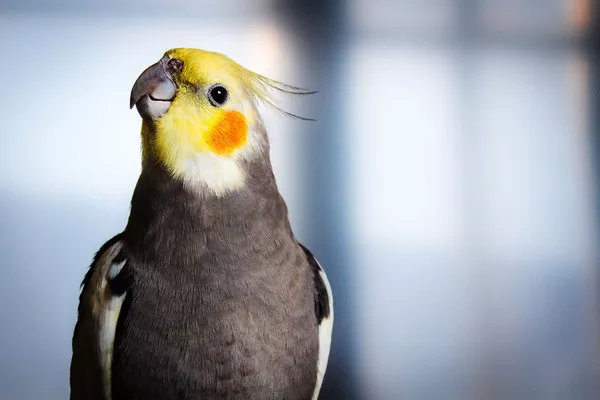Rabbits are gentle, sociable, and often viewed as one of the most adorable pets. Their soft fur, large ears, and gentle demeanor make them irresistible to many animal lovers. However, despite their cute appearance, rabbits are complex creatures with unique needs, especially when it comes to their behavior, environment, and diet. Like any pet, they require responsible care, including attention to their behaviors and, in some cases, the need for control or management.
Understanding why rabbits need to be controlled is key to ensuring they live healthy, happy lives in a domestic setting. This article will explore the reasons why rabbits need careful attention and management, focusing on their natural instincts, behaviors, health concerns, and the challenges of keeping rabbits as pets. By the end, you’ll have a clear understanding of why proper care is essential for your rabbit‘s well-being and how control plays a role in their health and safety.
1. Understanding Rabbit Behavior
To understand why rabbits need control, it’s important to first appreciate their natural behaviors and instincts. Wild rabbits are prey animals, which means they are hardwired to be cautious and evasive. They have evolved to stay alert to potential threats and to seek out safety in burrows or other hiding places. In a domestic environment, this instinct can manifest in several ways, including nervousness around new people or unfamiliar situations.
Rabbits are also territorial creatures, especially when they feel their space is threatened. In the wild, they would establish burrows or other spaces to mark as their own, and this behavior can carry over into their interactions with other rabbits or humans. This territoriality can sometimes lead to aggression, particularly between unspayed or unneutered rabbits of the same gender.
In terms of social behavior, rabbits are highly social animals. They thrive on companionship and often become depressed or anxious if left alone for long periods. Therefore, controlling how they interact with their environment and with other animals is crucial to preventing loneliness or destructive behaviors like chewing or digging.
2. The Importance of Proper Housing and Space
Rabbits are active animals that require plenty of space to hop, run, and explore. While many people keep their rabbits in cages, it’s crucial to understand that these cages should be viewed as a place for rest, not as a permanent home. Rabbits need room to stretch their legs and engage in physical activity, which is essential for their health.
Small cages limit their movement, leading to boredom, stress, and potential health problems. In fact, confinement in too small of a space can cause a rabbit to become overweight or develop joint issues from a lack of exercise. An appropriate living environment for a rabbit includes a large, secure pen or a rabbit-proofed room where they can hop freely without danger of injury or destruction.
However, rabbits are natural chewers, and they will chew on anything they can reach. Electrical cords, furniture, and baseboards can all be potential hazards, so owners must rabbit-proof their homes. This is where control becomes necessary—not only to keep the rabbit safe but also to protect the home environment.
3. The Role of Diet in Control
A rabbit’s diet is crucial to its overall health, and controlling what they eat is an essential part of responsible pet ownership. In the wild, rabbits forage for a wide variety of grasses, leaves, and other plants. In a domestic setting, their diet should closely mirror these natural food sources.
A rabbit’s diet should be high in fiber to support their digestive health, with hay being the primary component. Fresh vegetables should also be included, but fruit should only be given in moderation due to its high sugar content. Pellets can be a part of the diet but should not be the sole food source, as they often lack the variety and fiber needed for proper digestion.
Controlling the food they eat is important because rabbits have very sensitive digestive systems. If they are given the wrong types of food or too much sugary food, it can lead to serious health issues, such as gastrointestinal stasis—a condition where the digestive system slows down or stops entirely. This can be life-threatening and requires immediate veterinary intervention.
Another aspect of diet control is preventing rabbits from overeating. Obesity is a common issue in pet rabbits, and this is often caused by overfeeding or giving too many high-calorie treats. Maintaining a proper diet and ensuring that your rabbit gets the right balance of nutrients is key to their overall health and longevity.
4. The Importance of Spaying and Neutering
One of the most important aspects of rabbit care, and one of the primary reasons why they need control, is spaying and neutering. Rabbits can reproduce quickly, and uncontrolled breeding can lead to overpopulation and health problems. Unspayed female rabbits can also develop uterine cancer, and unneutered males may become more territorial and aggressive.
Spaying or neutering your rabbit helps control its behavior, making it easier to live with them in a home setting. After spaying or neutering, rabbits often become calmer and more relaxed. Additionally, it helps prevent unwanted litters and reduces the risk of certain health problems. It is important to note that spaying and neutering should be done at an appropriate age—usually around 4 to 6 months—so that the rabbit can benefit from these procedures at the right time.
5. Preventing Destructive Behaviors
Rabbits are notorious for being destructive if they are bored or not given enough attention. Chewing on furniture, wires, or household objects is common, and it can lead to significant damage to the home environment. To prevent destructive behaviors, owners must ensure that their rabbits have appropriate toys and enrichment activities to engage with. Regular interaction with the rabbit, including playtime and socialization, can also help reduce boredom.
In addition to chewing, rabbits may also dig, especially if they are confined in small spaces. Digging is a natural behavior that rabbits exhibit in the wild, as they dig to create burrows or escape predators. Providing them with an appropriate area to dig in—such as a sandbox or a designated corner of their pen—can help manage this behavior.
Training your rabbit is another way to control their behavior. Though rabbits are not as easily trainable as dogs, they can learn basic commands and even litter box use. Positive reinforcement, such as rewarding them with a treat when they use the litter box, can help foster good habits.
6. Health Control and Veterinary Care
Routine veterinary care is a key part of controlling your rabbit’s health. Rabbits require regular check-ups to monitor their weight, dental health, and overall well-being. Rabbits’ teeth grow continuously, so they need to chew on hay and other appropriate items to help wear down their teeth. If their teeth become overgrown, it can lead to painful dental problems that require veterinary intervention.
Other common health issues in rabbits include gastrointestinal issues, respiratory infections, and parasites. Regular health checks help detect any early signs of illness before they become serious, allowing for timely treatment.
Preventative care is an essential part of controlling a rabbit’s health. Keeping up with vaccinations, parasite prevention, and maintaining a clean living environment all contribute to keeping your rabbit healthy and free from disease.
7. Socializing and Bonding with Other Animals
While rabbits can live alone, they are naturally social animals and thrive in the company of others, particularly other rabbits. However, introducing a new rabbit into a household requires control and management. Rabbits can be territorial, and introducing a new pet can lead to fights if not done carefully.
When introducing two rabbits, it’s important to do so gradually, allowing them to get accustomed to each other’s scent before they meet face-to-face. Neutral territory, such as a room they are both unfamiliar with, is often the best setting for the initial introduction. It’s also important to keep an eye on their behavior during this time to ensure that aggression doesn’t escalate.
Rabbits may also interact with other pets in the home, such as dogs or cats. However, rabbits are small and fragile, so interactions with larger animals should always be closely supervised to prevent harm.
8. The Psychological Needs of Rabbits
Beyond their physical needs, rabbits also have psychological needs that must be controlled and met. Rabbits are intelligent animals and require mental stimulation to stay happy. Without proper stimulation, they can become bored, stressed, and even depressed.
Enrichment activities, such as providing toys, tunnels, or new areas to explore, can help keep your rabbit mentally active. Social interaction with their human caretakers is also important, as rabbits can form strong bonds with their owners and need regular companionship.
Stress can also be a significant issue for rabbits, as they are prey animals and can easily become frightened by loud noises, sudden movements, or unfamiliar environments. Creating a calm, secure environment for your rabbit is essential to keeping them happy and healthy. By controlling their environment and providing consistent care, you can help reduce stress and improve their quality of life.
Conclusion
Rabbits are delicate and intelligent creatures that require careful attention to their behavior, environment, diet, and health. Controlling these aspects of their care is essential to ensuring that they live a long, healthy, and fulfilling life. From proper housing to diet management, spaying and neutering, and preventing destructive behaviors, all aspects of rabbit care require thoughtful management and control.
By providing an appropriate living environment, meeting their social and psychological needs, and addressing their physical health, rabbit owners can ensure that their pets are well-cared for and happy. Understanding the reasons why rabbits need to be controlled and taking steps to manage their care appropriately is key to forming a strong and lasting bond with these wonderful animals.
Related Topics:




















